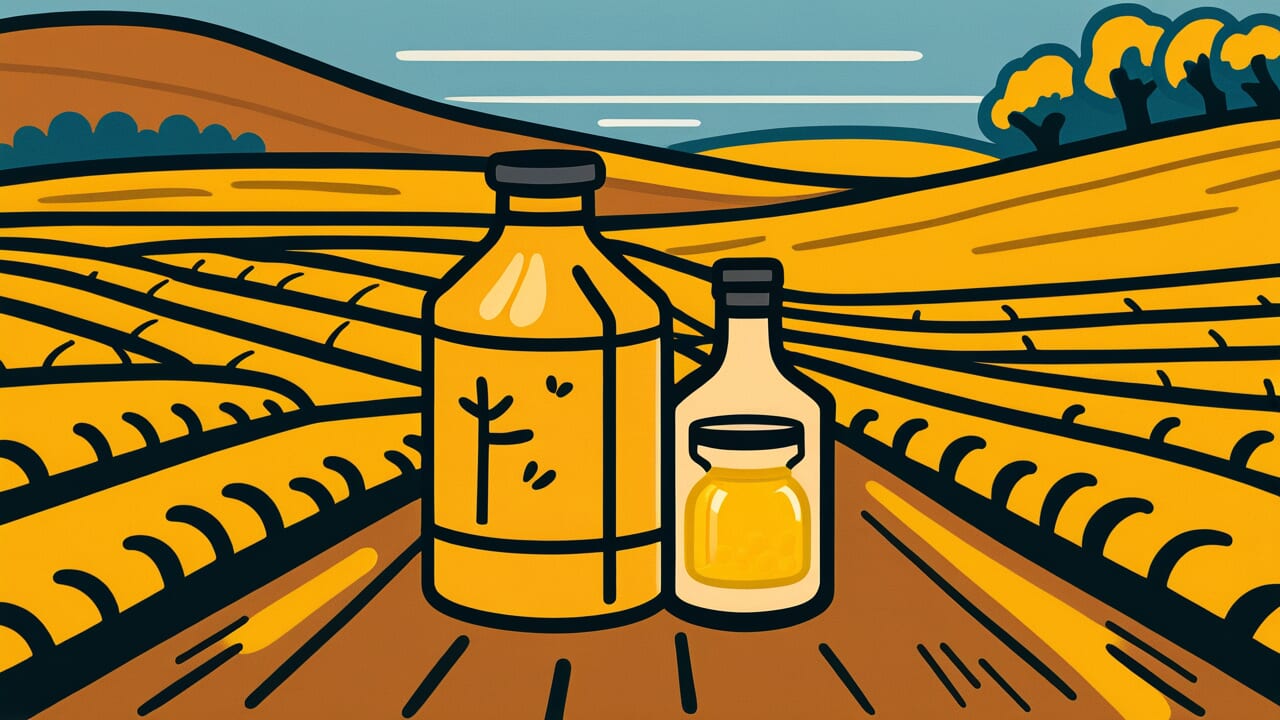How to Read “From rapeseed to oil”
Natane kara abura made
Meaning of “From rapeseed to oil”
“From rapeseed to oil” means everything from beginning to end, completely and thoroughly.
It refers to the entire process from the raw material of rapeseed to the final product of oil. This expresses including everything from start to finish without skipping any steps in between.
This proverb is mainly used when doing something thoroughly or explaining a complete process without omissions.
For example, it’s used when telling about an event in detail from start to finish, or when handling all stages of a job by yourself.
It has a similar meaning to expressions like “the whole story” or “from start to finish.” However, the concrete image of oil production gives it a more down-to-earth feel.
Even today, you can use this expression when dealing comprehensively with everything from planning to completion of a project, or from the beginning to the end of an incident.
Origin and Etymology
No clear written records remain about the origin of this proverb. However, it’s thought to be an expression deeply rooted in the daily life of common people during the Edo period.
Rapeseed oil was the most important lighting oil in Edo-period Japan.
Extracting oil from rapeseed required many steps. First, people cultivated rapeseed flowers in spring and waited for the flowers to finish blooming before harvesting the seeds.
After that, they dried the seeds, roasted them, and ground them. Only then could they finally press and extract the oil.
This series of tasks took more than six months and required tremendous effort. It started from sowing seeds and ended with the final product of oil.
Farming families knew every step of the process from rapeseed to oil through firsthand experience.
From this, the expression was born to mean everything from beginning to end, including all steps without omitting any part of the process.
The concrete work process of oil production became established as words expressing the abstract concept of “everything from start to finish.”
This is a proverb filled with real feeling, born from the actual lives of common people.
Usage Examples
- She completed this project from rapeseed to oil all by herself, so she deserves recognition
- Could you explain yesterday’s commotion from rapeseed to oil?
Universal Wisdom
The proverb “From rapeseed to oil” reveals humanity’s fundamental desire for completeness.
We feel some anxiety or dissatisfaction when we only partially know something. The desire to grasp the whole picture and understand everything is an expression of our fundamental intellectual curiosity.
This proverb also connects deeply with the concept of “responsibility.”
Seeing something through from beginning to end, or being in charge of it, means taking complete responsibility for that thing.
The attitude of not giving up halfway but staying involved until the end has been valued across time as a condition for being a trustworthy person.
What’s more interesting is that this proverb implicitly shows “the importance of process.”
The expression from rapeseed to oil teaches that not just the result, but all the processes leading to it have value.
Modern society tends to focus only on results. But our ancestors understood that the process itself is the essence.
Everything from beginning to end has meaning, and no stage can be omitted.
Perhaps this truth about life is condensed in these few short words.
When AI Hears This
Throughout the universe, energy constantly changes into less usable forms.
Hot coffee cools down, rooms get messy, and order moves toward disorder. This is the second law of thermodynamics.
But life alone is an exception, gathering energy from its surroundings to create the “order” of its own body.
Plants collect scattered energy from sunlight to create seeds, which are high-density energy storage units. A single rapeseed contains about 6 kilocalories of concentrated energy.
When humans extract oil from rapeseed, they’re further selecting and extracting only the most useful parts of this concentrated energy.
In other words, they’re taking energy that plants have already gathered by defying the laws of the universe and concentrating it one more level.
This is secondary use of life’s strategy for gathering energy from the environment—a “chain of ordering,” so to speak.
What’s interesting is that the more thoroughly you extract, the more thermodynamically efficient it actually is.
Even the leftover rapeseed cake becomes fertilizer or feed, minimizing energy waste.
Ironically, the “thoroughness of exploitation” that this proverb criticizes is actually rational as a life strategy resisting the universe’s energy dissipation.
However, when you do this in human relationships, you exhaust the “energy source” of the other person itself.
The danger of pursuing efficiency while ignoring sustainability appears here.
Lessons for Today
What this proverb teaches modern people is the importance of “complete responsibility” for things.
In our busy daily lives, we tend to focus only on our own assigned parts. But truly valuable work and deep understanding come from seeing through from beginning to end.
When you work on something, do you try to grasp its whole picture?
Instead of being involved only partially—just planning, just executing, or just evaluating—try to look at the entire process as much as possible. By doing so, you’ll see the essence of things.
This proverb also teaches the importance of “responsibility to see things through to the end.”
Rather than leaving things to others midway or judging based only on results, watch over what you’ve been involved in until the end.
That attitude gives depth to your work and relationships.
You don’t need to aim for perfection. Just keep your heart engaged until the end with what you’ve started.
That sincerity will generate trust from those around you and lead to your own growth as well.



Comments